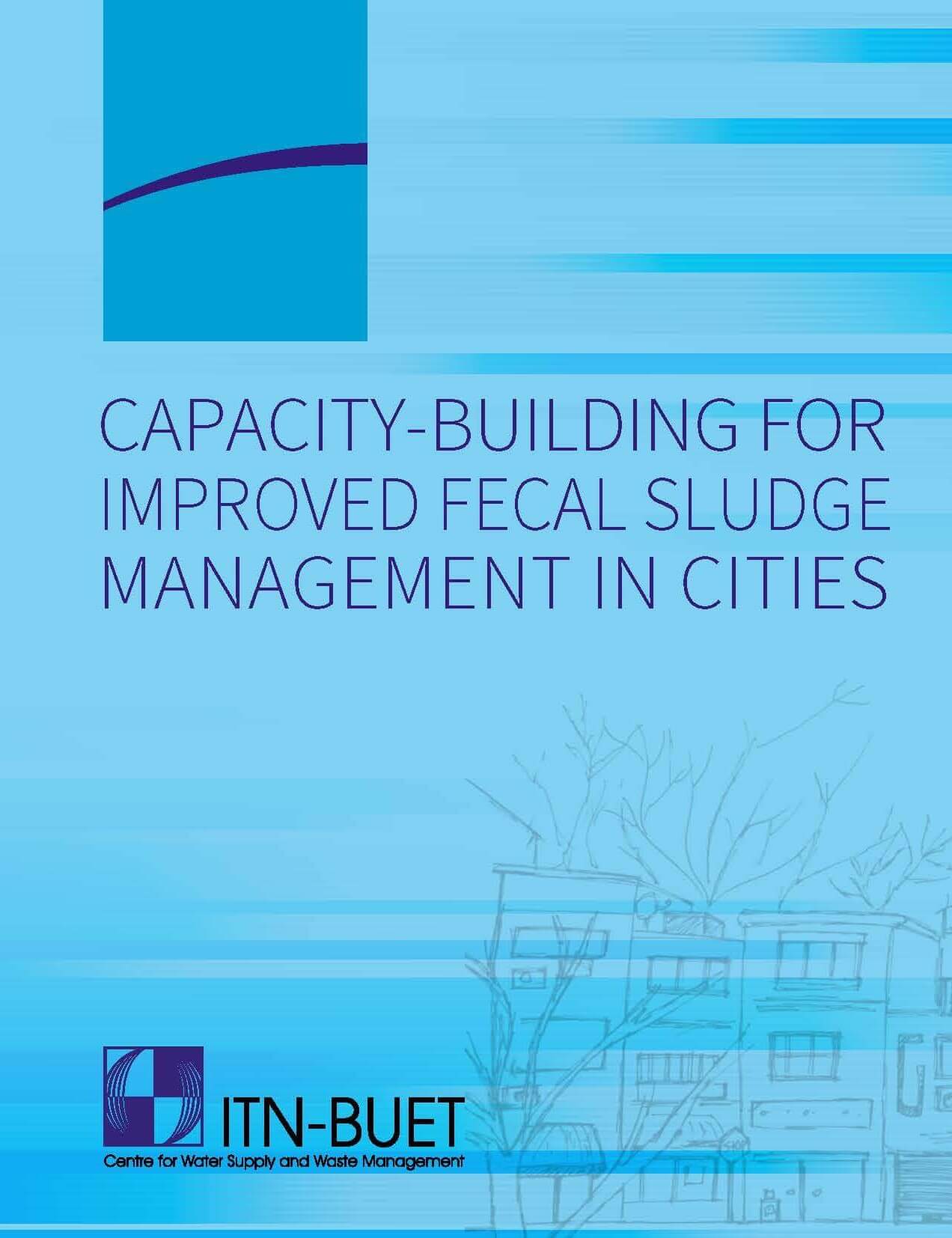Capacity-building for Improved Fecal Sludge Management in Cities
Publisher(s): ITN-BUET

Category(s): Books & Proceedings
Language: English
Publication Year: 2021
Document Type: PDF
The book highlights the formidable challenge of managing fecal sludge in Bangladesh to achieve Sustainable Development Goal (SDG) 6.2. The country's urban areas, heavily reliant on onsite sanitation, face complex issues due to rapid population growth. Despite lacking financial resources and a clear plan, implementing sustainable sanitation is crucial. Fecal sludge management (FSM) emerges as a viable solution due to its cost-effectiveness and technical feasibility, but success hinges on authorities' and users' commitment.
The International Training Network of Bangladesh University of Engineering and Technology (ITN-BUET) collaborates closely with the Department of Public Health Engineering (DPHE) to empower Paurashava officials in secondary towns for FSM implementation. Through training initiatives, 161 officials from 38 Paurashavas and local DPHE offices were equipped with knowledge on technical and non-technical aspects of FSM. These officials, influenced by the training, engaged local decision-makers and initiated effective sludge management practices.
The book serves as a compilation of success stories to inspire other city authorities to adopt FSM in their regions. Political leadership and the determination of implementers are key drivers of change. While challenges abound, cities strive to enhance sanitation systems with technical and financial support from DPHE development projects. The efforts of Paurashava officials from Gafargaon, Manirampur, and Sreepur Paurashavas are particularly acknowledged for promoting FSM.
Focus Area
Sanitation, FSM, CWIS
Keywords
Capacity-building, Fecal Sludge Management
Country
Bangladesh
Copyright
This is an open access work distributed under the terms of the Creative Commons Attribution License, which permits unrestricted use, distribution, and reproduction in any medium, provided the original work is properly cited.
No comment yet.